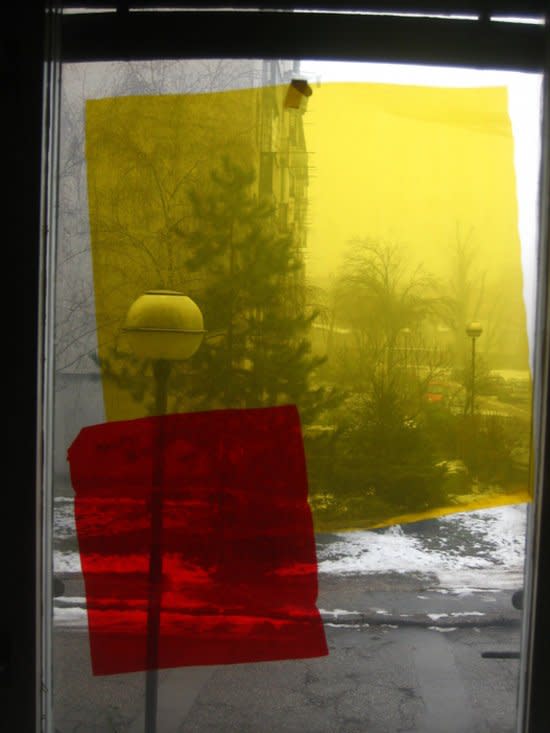Annet Gelink Gallery proudly presents ´Missing Colours´, the third solo exhibition of David Maljkovic. With ´Missing Colours´, David Maljkovic (Croatia, 1973) has taken a new road within his investigation of the history and the future of modernistic concepts. His place of residence Novi Zagreb - a part of the town that was built in the Socialist period - was point of departure for this new exhibition.
Colour plays the leading role in ´Missing Colours´. Inspired by a key scene from the Yugoslav comedy ´Balkan Spy´ (1984) in which an artist throws coloured paint against the grey apartment buildings and is picked up by the police, various colours are alternately projected from a slide projector at a monumental pedestal. The room is filled with the reflection of the coloured slide series. In this light the walls show new collages on canvas. A second slide series in the back of the room shows a sculpture photographed at various locations outside Zagreb.
With 'Missing Colours' David Maljkovic puts an accent at the current situation rather than referring to events in the past. Despite the intensity of the colours the exhibition emphasises the literal and figurative emptiness of a failed utopia that at this moment can be seen not just in Novi Zagreb, but at many places in the world.
Colour plays the leading role in ´Missing Colours´. Inspired by a key scene from the Yugoslav comedy ´Balkan Spy´ (1984) in which an artist throws coloured paint against the grey apartment buildings and is picked up by the police, various colours are alternately projected from a slide projector at a monumental pedestal. The room is filled with the reflection of the coloured slide series. In this light the walls show new collages on canvas. A second slide series in the back of the room shows a sculpture photographed at various locations outside Zagreb.
With 'Missing Colours' David Maljkovic puts an accent at the current situation rather than referring to events in the past. Despite the intensity of the colours the exhibition emphasises the literal and figurative emptiness of a failed utopia that at this moment can be seen not just in Novi Zagreb, but at many places in the world.

